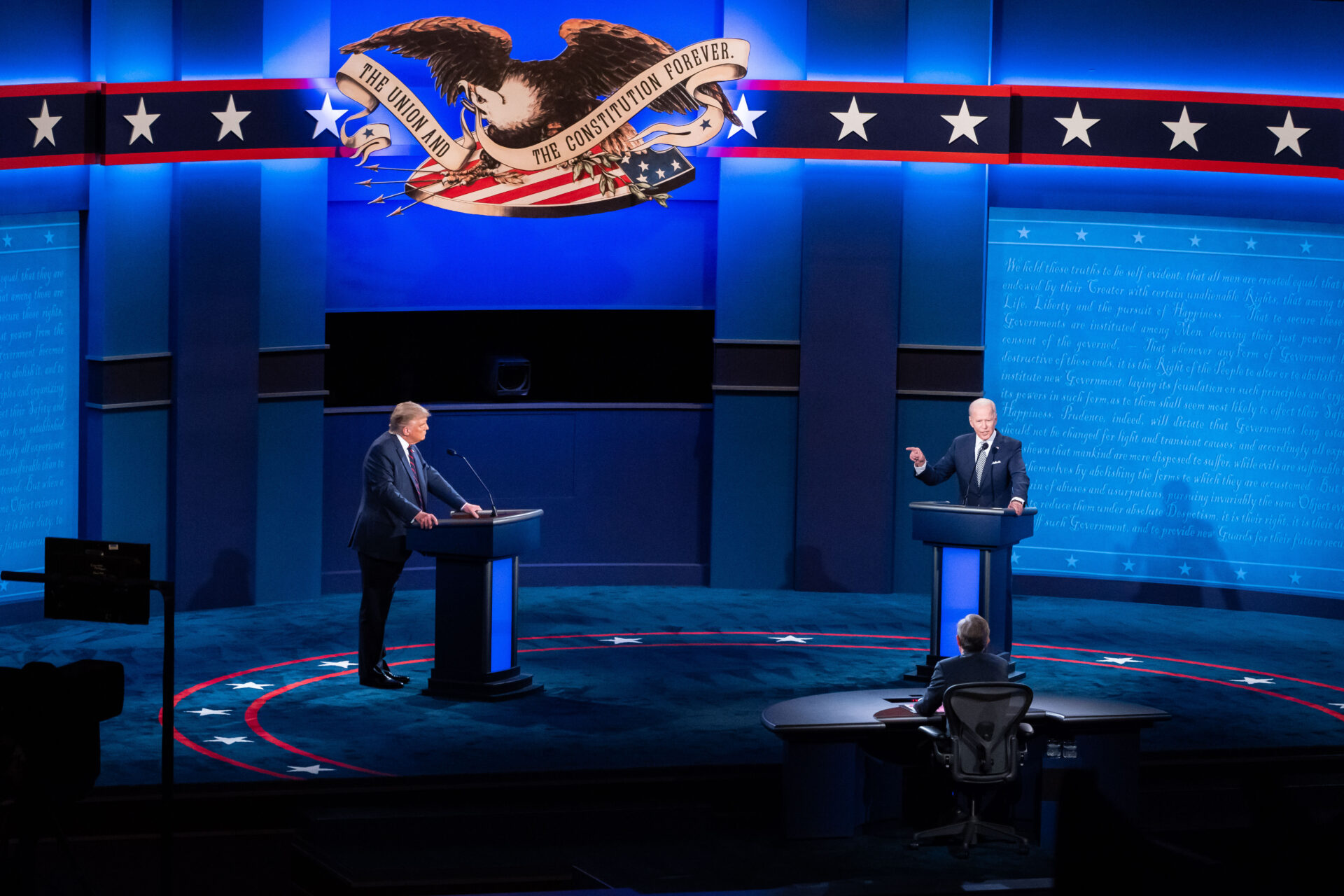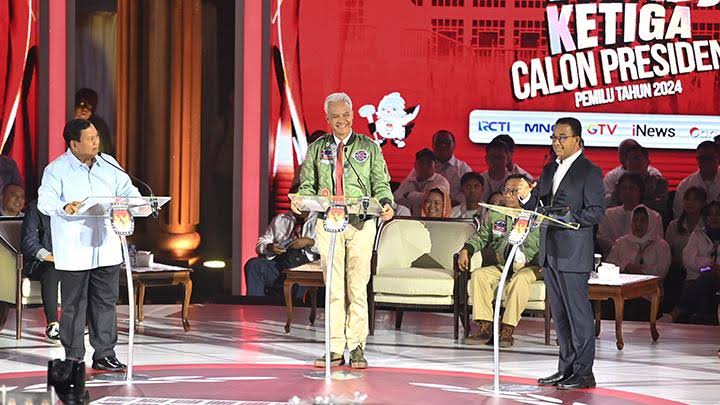Historical Context of September Presidential Debates

September presidential debates have become a crucial part of the American political landscape, shaping the narrative of the election and influencing voter decisions. These debates provide a platform for candidates to articulate their visions, engage in policy discussions, and connect with the electorate.
September Presidential Debates: A Historical Timeline
The significance of September debates in presidential elections is undeniable. Throughout history, these events have shaped the course of campaigns, revealing candidate strengths and weaknesses and influencing public opinion.
- 1960: Kennedy vs. Nixon: The first televised presidential debates, held in September 1960, marked a watershed moment in American political history. The debates, which featured John F. Kennedy and Richard Nixon, are widely credited with influencing the outcome of the election. Kennedy’s confident and charismatic demeanor on television contrasted with Nixon’s perceived nervousness, giving Kennedy a significant advantage.
- 1980: Carter vs. Reagan: The September debates in 1980 saw incumbent President Jimmy Carter facing off against Ronald Reagan. The debates were particularly significant due to the economic challenges facing the nation, with Reagan effectively capitalizing on the public’s dissatisfaction with Carter’s handling of the economy. Reagan’s strong performance in the debates contributed to his landslide victory.
- 1992: Bush vs. Clinton vs. Perot: The 1992 debates, featuring George H.W. Bush, Bill Clinton, and Ross Perot, were notable for their three-way format. Clinton’s performance in the debates, particularly his ability to connect with voters on economic issues, was seen as a key factor in his victory.
- 2000: Bush vs. Gore: The 2000 debates, featuring George W. Bush and Al Gore, were highly contested and ultimately resulted in a close election. While the debates themselves did not directly influence the outcome, they provided a platform for the candidates to present their contrasting views on key issues such as education, healthcare, and the environment.
- 2008: Obama vs. McCain: The 2008 debates, featuring Barack Obama and John McCain, were significant for their focus on the global financial crisis and the changing political landscape. Obama’s strong performance in the debates, particularly his ability to articulate a vision for change, contributed to his victory.
- 2016: Clinton vs. Trump: The 2016 debates, featuring Hillary Clinton and Donald Trump, were highly controversial and widely watched. The debates were marked by personal attacks, interruptions, and a focus on divisive issues. Trump’s performance, while unconventional, resonated with a significant segment of the electorate, contributing to his unexpected victory.
Impact of September Debates on Election Outcomes, September presidential debate
September debates have consistently played a significant role in shaping election outcomes. They provide a platform for candidates to make their case to the electorate, influencing voter decisions and shaping the political narrative.
- Increased Voter Turnout: September debates often lead to increased voter turnout, as they raise awareness about the election and generate interest among the electorate. The debates provide a platform for candidates to present their views on key issues, encouraging voters to become more informed and engaged in the process.
- Shifting Public Opinion: September debates can significantly shift public opinion, particularly among undecided voters. Strong performances in the debates can boost a candidate’s image and increase their chances of winning the election. Conversely, poor performances can damage a candidate’s reputation and reduce their support.
- Media Coverage and Attention: September debates receive extensive media coverage, which further amplifies their impact on the election. The debates provide a platform for candidates to make headlines and set the agenda for the campaign. This media attention can help to shape the public’s perception of the candidates and their policies.
Format and Topics of Past September Debates
September presidential debates have evolved over time, with changes in format, topics, and the role of media. While the debates have always provided a platform for candidates to engage in policy discussions, the format and focus have shifted to reflect the changing political landscape.
- Format: Past September debates have featured various formats, ranging from town hall meetings to traditional question-and-answer sessions. Some debates have included audience participation, while others have been moderated by journalists or experts.
- Topics: The topics covered in September debates have varied depending on the political climate and the candidates’ positions. Common topics include the economy, healthcare, education, foreign policy, and social issues.
- Role of Media: The role of media in September debates has evolved significantly over time. In the early years, television coverage was limited, and the debates were primarily a radio event. However, with the advent of cable news and social media, debates have become a major media event, with extensive coverage across various platforms.
Strategic Considerations and Potential Impacts: September Presidential Debate

The September presidential debate holds immense strategic importance for both candidates, offering a crucial platform to sway undecided voters and solidify their positions in the race. The debate’s performance can significantly impact public opinion, voter turnout, and ultimately, the outcome of the election.
Impact on Public Opinion and Voter Turnout
The debate performance can have a profound impact on public opinion and voter turnout. A strong showing can boost a candidate’s favorability ratings, increase their name recognition, and inspire supporters to turn out on Election Day. Conversely, a poor performance can damage a candidate’s image, alienate potential voters, and dampen enthusiasm among their base.
A study by the Pew Research Center found that a significant percentage of voters, particularly those who are undecided or less informed about the candidates, are influenced by their performance in debates.
Potential Outcomes of the Debate
The following table Artikels the potential outcomes of the debate for each candidate:
| Candidate | Positive Outcome | Negative Outcome |
|---|---|---|
| Candidate A | Increased favorability ratings, higher name recognition, increased voter turnout | Decreased favorability ratings, lower name recognition, decreased voter turnout |
| Candidate B | Increased favorability ratings, higher name recognition, increased voter turnout | Decreased favorability ratings, lower name recognition, decreased voter turnout |
September presidential debate – Yo, September’s presidential debate was fire! Everyone was talkin’ about it, especially after that crazy exchange between the candidates. It reminded me of those wild Trump press conferences where he’d just go off on tangents and throw shade at anyone.
But hey, that’s politics, right? Anyway, the debate got people fired up, and I’m sure we’ll see more heat in the upcoming ones.
Yo, September’s presidential debate is gonna be lit! It’s a chance for the candidates to throw down and show us what they’re made of. Presidential debates, like the one coming up, are a major part of our political system, and they can really shape the landscape of American politics.
Check out this article for more on how debates impact our nation. So, get ready for some serious fire, ’cause this September debate is gonna be epic!
